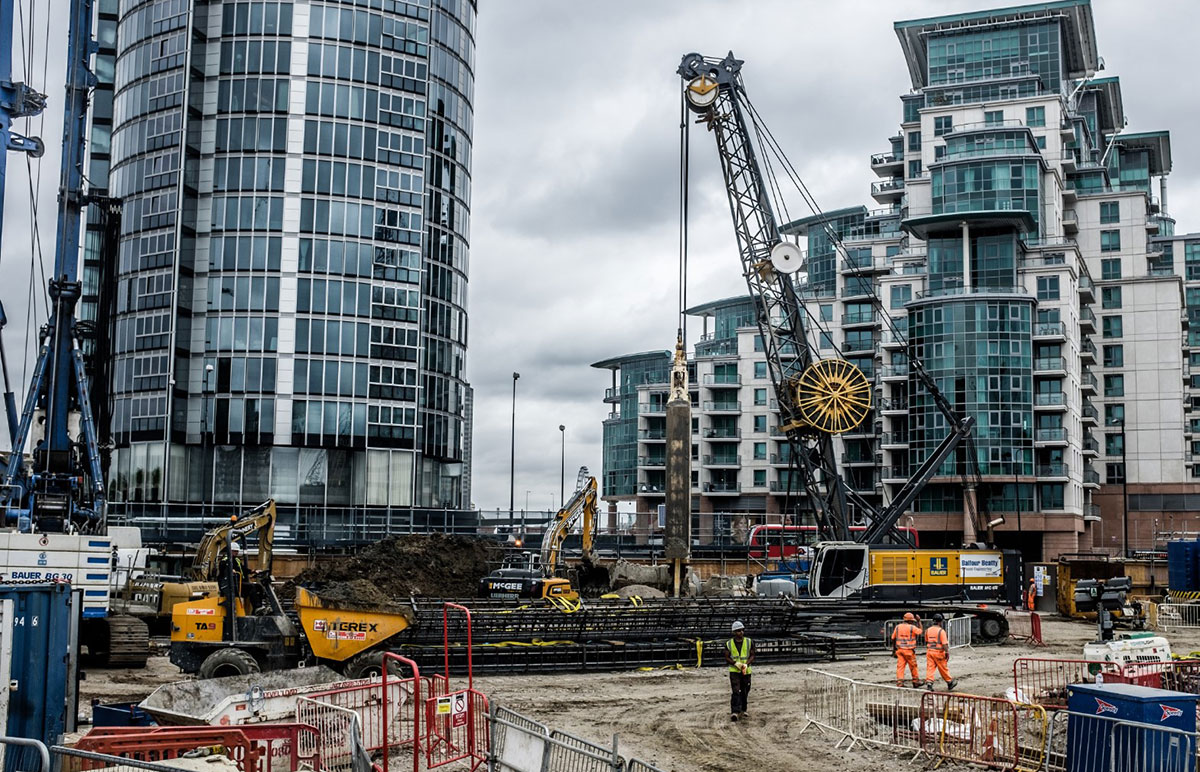Geotheta for Beginners
Wiki Article
The Ultimate Guide To Geotheta
Table of ContentsMore About GeothetaAll About GeothetaThe Basic Principles Of Geotheta Not known Incorrect Statements About Geotheta Geotheta for Beginners

They perform website examinations, collect examples, perform laboratory tests, and evaluate data to assess the suitability of the ground for building jobs - Consulting Engineer. Based upon their findings, geotechnical designers provide recommendations for structure layout, incline stability, preserving frameworks, and mitigation of geotechnical risks. They work together with various other professionals, such as engineers, architectural designers, and construction teams, to guarantee that geotechnical considerations are incorporated into the overall project design and implementation
By evaluating the behavior and homes of soil and rock, they can identify possible geotechnical dangers such as landslides, soil negotiation, or incline instability. Their experience assists stop failures or accidents that can endanger lives and residential property. Below are some in-depth tasks and obligations of a geotechnical engineer: Website Examination: Geotechnical engineers conduct site investigations to gather information on subsurface conditions.
They translate the data to comprehend the properties and behavior of the soil and rock, including their stamina, permeability, compaction characteristics, and groundwater problems. Geotechnical Evaluation and Style: Geotechnical engineers evaluate the data accumulated throughout site investigations to analyze the stability and suitability of the website for building jobs. They do geotechnical estimations and modeling to examine aspects such as birthing capability, settlement, slope stability, side planet stress, and groundwater flow.
Not known Facts About Geotheta
Structure Design: Geotechnical engineers play a crucial duty in developing foundations that can securely support the intended framework. They evaluate the dirt conditions and lots needs to establish the suitable structure type, such as superficial structures (e.g., footings), deep foundations (e.g (https://www.provenexpert.com/geotheta/)., heaps), or specialized methods like soil renovation. They take into consideration variables such as negotiation limitations, bearing capacity, and soil-structure interaction to create optimum structure layoutsThey evaluate construction strategies, screen website tasks, and conduct field evaluations to validate that the style suggestions are complied with. If unforeseen geotechnical problems arise, they assess the scenario and provide suggestions for remediation or modifications to the design. Danger Analysis and Mitigation: Geotechnical designers evaluate geotechnical threats and dangers associated with the job site, such as landslides, liquefaction, or dirt erosion.

Collaboration and Interaction: Geotechnical engineers function closely with various other professionals involved in a job, such as engineers, structural designers, and building and construction teams. Effective interaction and collaboration are necessary to integrate geotechnical factors to consider into the overall job style and building procedure. Geotechnical engineers provide technical expertise, response questions, and guarantee that geotechnical needs are met.
Fascination About Geotheta
Right here are some sorts of geotechnical engineers: Foundation Engineer: Foundation designers concentrate on designing and evaluating foundations for structures. They examine the dirt problems, tons needs, and website characteristics to identify the most suitable foundation type and style, such as superficial structures, deep structures, or specialized techniques like pile foundations.They evaluate the variables influencing incline security, such as soil residential properties, groundwater problems, and slope geometry, and establish techniques to site stop slope failings and reduce dangers. Quake Engineer: Earthquake engineers specialize in analyzing and making structures to endure seismic forces. They examine the seismic risk of a site, review soil liquefaction potential, and create seismic style criteria to make certain the safety and security and durability of frameworks during quakes.
They execute field screening, accumulate samples, and assess the gathered data to identify the soil residential or commercial properties, geologic formations, and groundwater problems at a website. Geotechnical Instrumentation Engineer: Geotechnical instrumentation designers concentrate on monitoring and measuring the actions of soil, rock, and structures. They set up and maintain instrumentation systems that keep track of factors such as dirt settlement, groundwater degrees, slope activities, and architectural displacements to analyze efficiency and supply early warnings of possible issues.
Get This Report on Geotheta
They carry out tests such as triaxial examinations, loan consolidation tests, direct shear examinations, and permeability tests to gather data for geotechnical analysis and style. Geosynthetics Designer: Geosynthetics designers specialize in the design and application of geosynthetic materials, such as geotextiles, geogrids, and geomembranes. They utilize these products to enhance soil security, strengthen slopes, give drainage remedies, and control disintegration.They tend to be investigatory people, which suggests they're intellectual, reflective, and analytical. They wonder, systematic, reasonable, logical, and sensible. Some of them are also social, indicating they're kind, charitable, cooperative, patient, caring, valuable, understanding, tactful, and friendly. Does this audio like you? Take our free career test to learn if geotechnical engineer is just one of your top career matches.
In the workplace atmosphere, geotechnical designers make use of specialized software program tools to carry out calculations, produce designs, and examine information. They prepare reports, review task requirements, connect with clients and employee, and coordinate task tasks. The office setup gives a favorable environment for study, analysis, and cooperation with other professionals associated with the job.
How Geotheta can Save You Time, Stress, and Money.
They often check out task sites to carry out site investigations, examine geotechnical problems, and gather data for analysis. These sees include traveling to various areas, occasionally in remote or challenging surfaces. Geotechnical designers may do dirt tasting, conduct examinations, and monitor construction tasks to guarantee that the geotechnical facets of the project are being carried out correctly.Geotechnical engineers also function in specialized geotechnical labs. Geotechnical lab designers work thoroughly in these settings, handling screening equipment, running tools, and taping data.
Report this wiki page